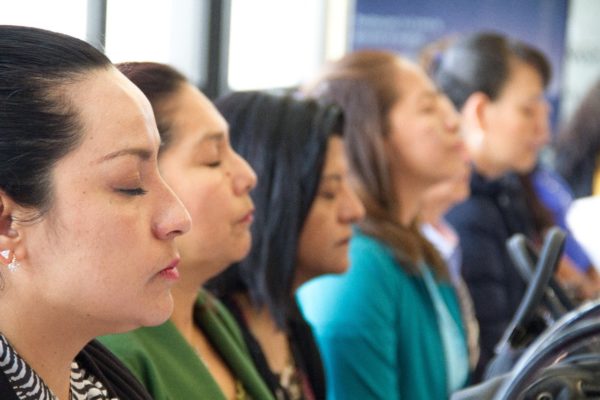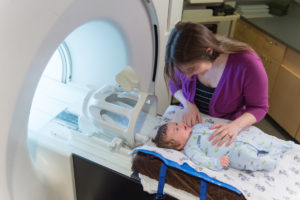More than 2,500 preschool principals and educators in Mexico are participating in a pilot study to improve their emotional well-being through social emotional learning skills, or trainings centered on healthy and positive relationships to one’s emotions and others.
Led by the Mexico-based nonprofit AtentaMente in collaboration with Center for Healthy Minds experts, the pilot seeks to understand ways to improve school cultures as well as educators’ well-being with hopes of ultimately improving emotional and achievement outcomes for students.
In the United States, nearly one third of teachers will leave the profession in the first three years due to stress. Increasingly, research suggests that teacher quality serves as the strongest predictor of student success and achievement, which makes keeping good teachers in the profession all the more important.
“With younger kids, much of the learning and messages you’re actually transmitting to them is from your own well-being as an adult and your own embodiment of calmness. Most interactions aren’t about what you’re saying but what you’re embodying.”

“In many ways, what educators in Mexico face is similar to the United States – teachers have a lot of burnout and stress from balancing all the needs of the kids, teachers, parents and educational authorities,” says Leandro Chernicoff, academic director of AtentaMente and doctorate student at the Center and UW–Madison. “There might be some nuances in some communities more affected by violence and corruption, but our goal is basically the same in addressing these challenges in a way that is relevant to a specific culture and country. Based on our feedback, we feel the curriculum we’re offering is relevant to Latino communities in Mexico and U.S.”

Educators from Mexico participating in a meditation practice during an AtentaMente training.
The initial training, supported by the educational group Fundación Banorte, expands AtentaMente’s larger goals of implementing social emotional learning curricula and programs in educational settings. The curriculum is informed by the latest childhood development and neuroscience research. New Center faculty member Sarah Short focuses on brain development in early childhood and is collaborating with Chernicoff and others to measure whether the program is affecting educators’ levels of stress, burnout, flourishing, attention, emotion regulation and self-awareness.
Beyond the pilot, the team hopes to understand how the training can scale and whether it may have a ripple effect to benefit more than 300,000 children in Mexico in contact with educators in the pilot, many of whom come from low socioeconomic backgrounds.
The idea is to investigate the popular notion that embodied behaviors in adults can produce significant benefits for kids. AtentaMente’s slogan, “Cambio yo, cambia todo,” which translates to “If I change, everything changes” underscores the importance of change starting within.
“With younger kids, much of the learning and messages you’re actually transmitting to them is from your own well-being as an adult and your own embodiment of calmness,” Chernicoff says. “Most interactions aren’t about what you’re saying but what you’re embodying.”
– Marianne Spoon






